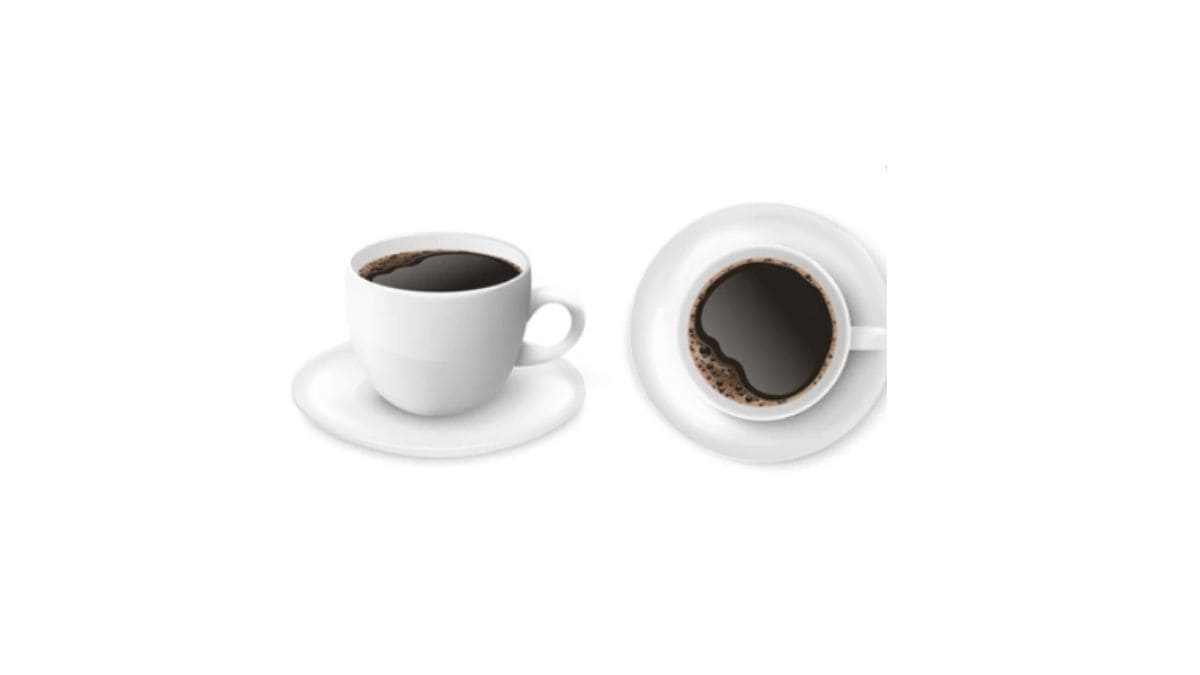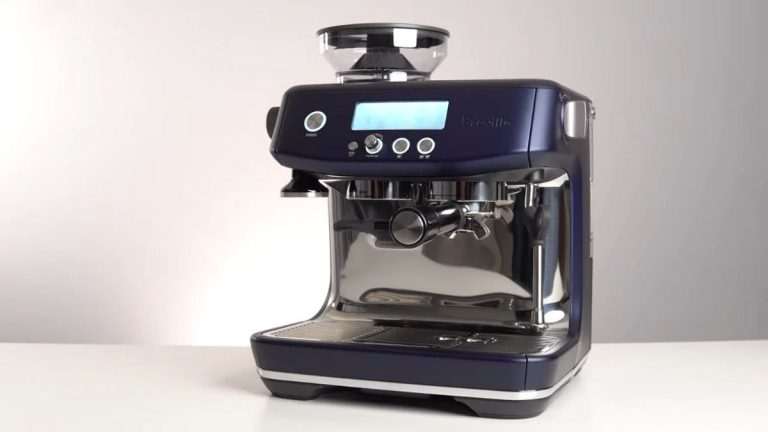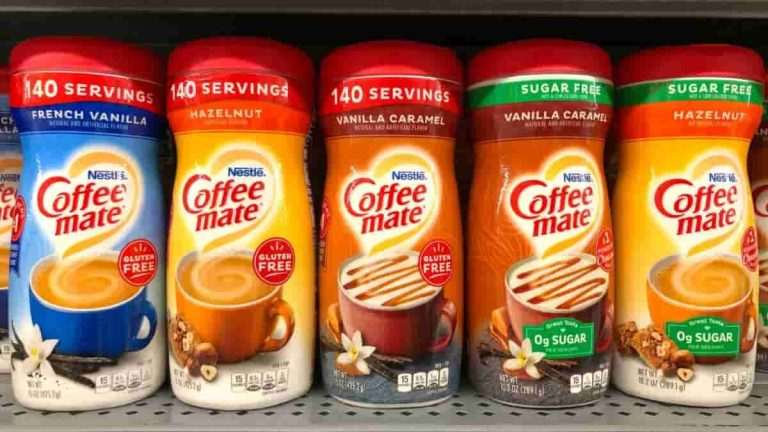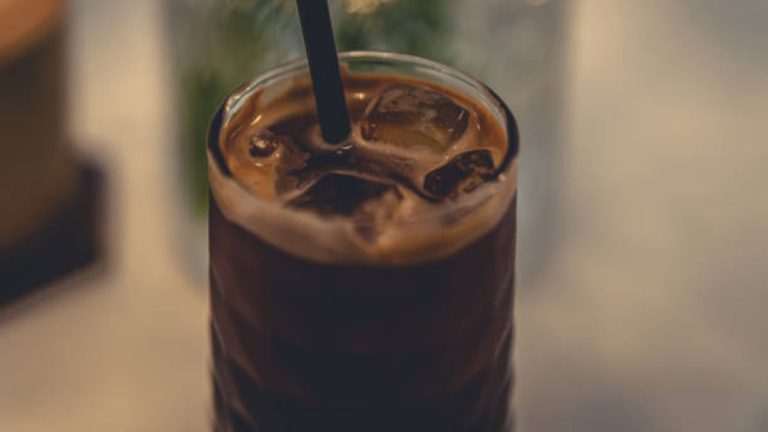How Many Calories In Decaf Coffee?
Decaf coffee has the same taste as regular coffee but without caffeine-related side effects (such as jitteriness and inability to sleep). If you choose decaf, the nutritional composition of your cup of coffee will change.
One cup of decaf coffee contains 0 calories, according to the USDA. Of course, this applies only to black decaf coffee; milk, sugar, and other modifications will raise the calorie amount.
When you drink decaf coffee instead of caffeinated coffee, the salt concentration rises somewhat. And, despite the name, caffeine is still present. According to the National Coffee Association, one cup of decaf coffee has around 2 milligrams of caffeine, which is much less than the 95 milligrams of caffeine in a cup of normal coffee.
Why Does Decaf Coffee Taste Different?
Table of Contents
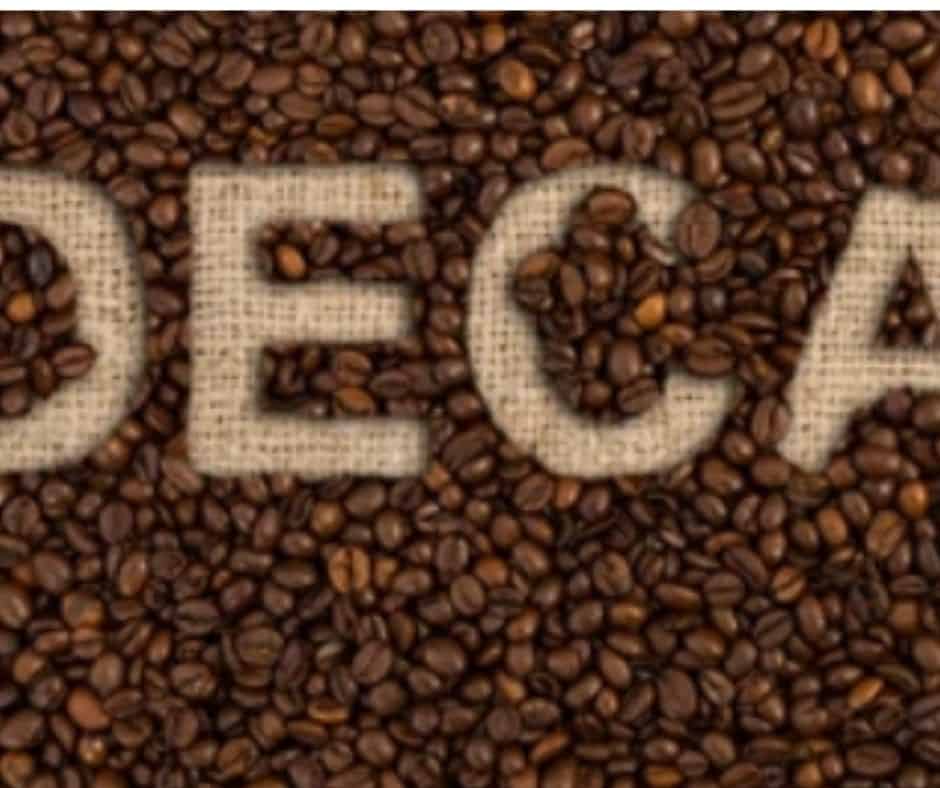
Generally, decaf coffee does not taste much different from normal coffee. Due to the processing of the coffee beans, an enthusiastic coffee user may find decaf coffee rather bitter in flavor. A person who does not drink coffee will not be able to tell the difference between a cup of decaf coffee and a cup of normal coffee.
Coffee beans used in the decaffeination process differ from ordinary beans. The intricate procedure generally results in a little sour taste in the deaf coffee.
Someone who does not consume coffee frequently, on the other hand, would not be able to tell the difference between the flavor of decaf and a standard cup of coffee. Especially if both coffees were grown and processed in the same location.
More evidence suggests that decaf coffee has medicinal benefits such as a lower risk of cancer and type 2 diabetes. As a result, they are growing trendier by the day.
Some ascribe the taste change to the grind of decaf coffee. Because decaf beans are soaked and dried before roasting, the end product may be a drier bean overall. Because the bean is drier, it grinds finer, producing a more bitter flavor than a caffeinated grind.
Gourmet Traveler discovered that in a blind tasting test, coffee tasters couldn’t tell the difference between decaf and normal coffee, and that decaf coffee scored significantly higher on flavor overall. The flavor difference may be due to reputation rather than the actual taste of the cup of decaf coffee.
Depending on your own taste, you may or may not detect a difference in the flavor of decaf coffee vs caffeinated coffee. Whether or not you perceive this change is partly dependent on your ability to locate the correct decaf for you. Decaf coffee that is of high quality may be just as good as caffeinated coffee.
It is processed using a rather more sophisticated procedure called the Swiss Water Process.
Because caffeine in coffee beans is derived from the outer of the bean, soaking the beans draws it out with dissolved caffeine. As a result, they may wind up losing a lot of taste as a result of this procedure.
Solvent extraction, a procedure developed in the 1980s, is less successful in removing caffeine. Nevertheless, it does not eliminate the flavor, which is why Swiss Water processed coffee isn’t unpleasant overall!
How many calories are in a cup of decaf coffee?
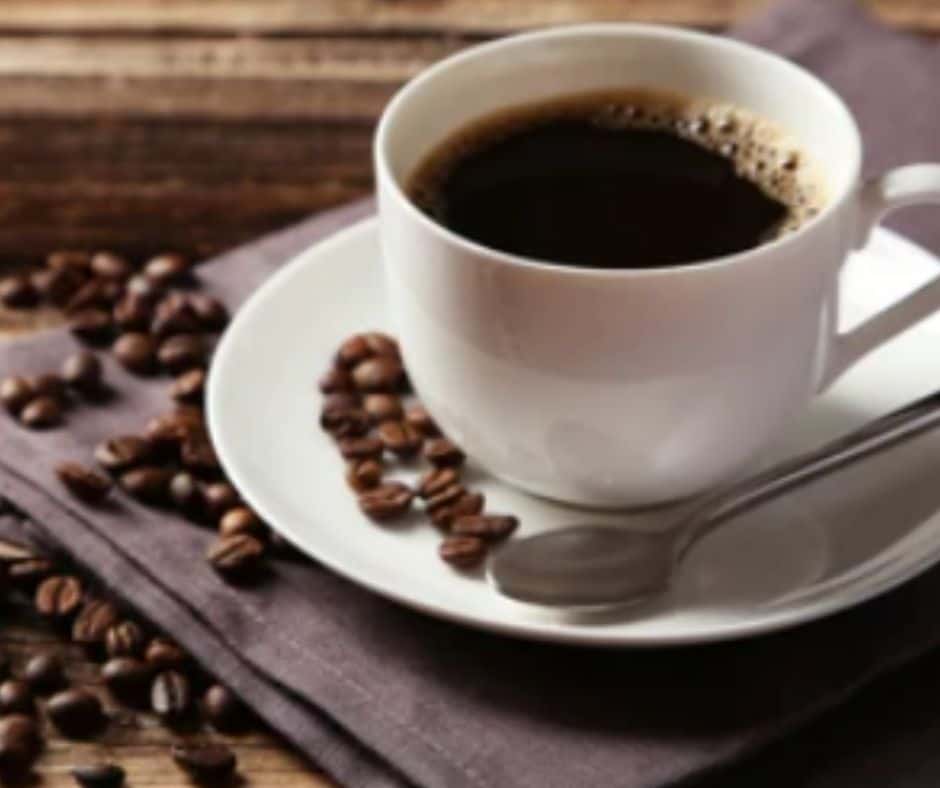
Calories per 8 ounces (240 ml)
325 (approx.) In fact, decaffeinated coffee has been shown to aid in weight loss and fat removal, as well as the improvement of blood flow. You should keep an eye on your calorie consumption depending on why you’re drinking coffee.
Is decaffeinated coffee good for weight loss?
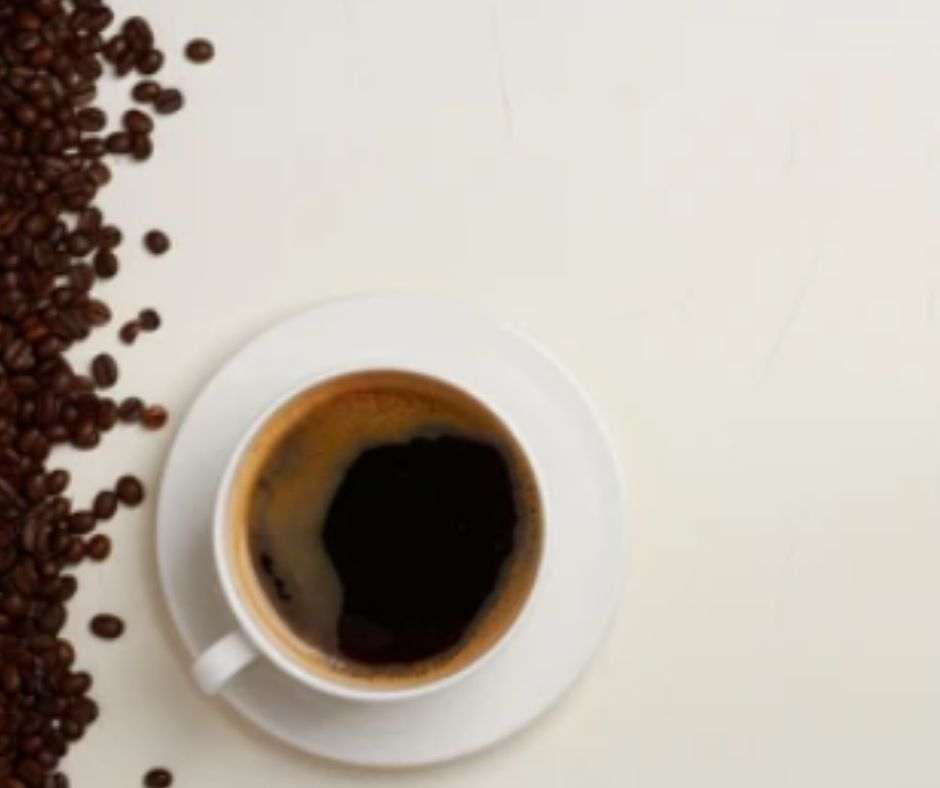
Yes, is the short answer.
A number of medical studies have found that both caffeinated and decaffeinated coffee can help people to:
• lose some weight
• lower the chance of developing adult-onset diabetes
The detailed response is as follows…
Coffee includes a plethora of naturally occurring chemicals, including numerous types of antioxidants thought to be protective against:
- Mild depression
- Parkinson’s Disease
- Colon and rectal cancers
However, according to this new study, several components in coffee also aid to and promote sustained weight reduction, control blood glucose, and minimize fat synthesis. These weight-controlling substances in coffee are antioxidants known as chlorogenic acids, which appear to inhibit the creation of glucose in the body after a meal by changing the activity of particular enzymes in the liver.
Additionally, chlorogenic acids cause a slower and more sustained release of glucose into the body after eating, reducing the development of new fat cells. As a result, it makes perfect sense and is supported by research that drinking a caffeinated or decaffeinated meal after a meal is a good idea. This inhibits glucose production and releases while also stimulating the body to produce more gastric juices, which aids digestion.
For example, the scholarly French journal Phytothérapie published a clinical evaluation that proved the fat-reducing properties of a green (non-roasted) coffee bean extract. The first group received 400 mg of decaffeinated green coffee extract daily, whereas the second received a placebo. Participants who got the decaffeinated green coffee extract lost 5.7 % of their starting weight after 60 days, whereas those who received a placebo dropped 2.8 % of their initial weight.
This demonstrates a consistent weight loss as a result of the usage of green coffee extract. Additionally, because the extract was decaffeinated, the weight reduction did not appear to be linked to the calorie-burning impact observed with caffeine. Gaining weight might sometimes indicate a risk of developing Type 2 Diabetes. Decaf coffee can also act as a preventative factor in type 2 diabetes.
The Harvest University Annals of Internal Medicine Journal discovered that consuming coffee – caffeinated or decaffeinated – on a regular basis lowers the risk of the illness. Similarly, the American Medical Association Journal revealed that drinking coffee on a daily basis is linked to a decreased chance of acquiring type 2 diabetes. The list goes on and on. A large number of studies from scientists all over the world have come to the same conclusion.
Is decaffeinated coffee healthy?
Coffee, with or without caffeine, has been linked to a variety of distinct health advantages, including improved longevity and a lower risk of several malignancies and chronic illnesses, according to independent scientific data.
More than 90% of American coffee users prefer caffeinated drinks, but decaf is a terrific choice for people who desire the flavor and social connections of coffee without the adrenaline boost that caffeine provides. Fortunately, in 1905, a coincidental mishap flooded a cargo of coffee beans with saltwater, washing the caffeine away and sparking the invention of contemporary decaffeination procedures.
Decaffeinated coffee, like all coffee, is safe to consume and can be part of a healthy diet.
If you’re wondering if the decaffeination process is safe, the answer is yes. After the caffeine is stripped away (at least 97 percent of the time), the beans are washed, steamed, and roasted at temperatures that evaporate the liquids used in decaffeination.
The Food and Drug Administration in the United States has established a stringent system that guarantees that any minute traces of solvents used to decaffeinate coffee are safe. These traces are measured by the FDA in “parts per million.” After decaffeination, coffee can contain no more than 10 parts per million of, say, methylene chloride – one-thousandth of a percent.
Does decaf coffee make you poop?
If you drink coffee, you’re probably already aware that decaf coffee contains no caffeine. Many coffee drinkers prefer low-octane coffee because caffeinated coffee gives them the jitters. Some coffee users believe that decaf coffee is also healthier, however, this has yet to be confirmed scientifically.
The question at hand is whether decaf coffee causes poop. The explanation is that it can cause you to poop. Decaffeinated coffee, like caffeinated coffee, can lead to increases in bowel movement, so going to the toilet after your first couple of cups in the morning is quite normal.
This may come as a surprise because decaf is devoid of caffeine, right? In this article, we’ll talk about decaf coffee and why it can make you poop just like regular coffee.
While there is no scientific evidence to support the claim that decaf coffee causes bowel movements, research has shown that coffee can cause a gastrocolic response in which your hormones and brain play a role. When you drink your first cup of coffee in the morning, your brain begins to send signals and your hormone levels begin to change.
These impulses stimulate your neurological system and promote colon motor action. This appears to occur whether the coffee is caffeinated or decaf.
While decaf may cause some coffee users to defecate, it does not impact all coffee drinkers in the same manner. Just as no caffeinated coffee user has a bowel movement after a cup of coffee, no decaf drinker does either.
Coffee, whether decaf or full of caffeine, stimulates your bowels.
Some coffee users may have cramps, bloating, and diarrhea as a result of this, but not all. Everyone is different, and some people have no laxative effects at all when they consume decaf coffee.
The answer to the issue of whether decaf coffee is beneficial for your stomach depends on how it is made. If you add milk, cream, sugar, or other flavorings to your coffee, there is a greater possibility that it will irritate your stomach. If you suffer from acid reflux, decaf coffee, or any coffee for that matter, is generally not for you. It is also believed that the first cup of coffee in the morning is the most likely to cause bowel motions.
Can I drink decaf coffee at night?
Yes, you can consume decaf coffee at night without worrying about disrupting your sleep or changing your biological clock. Although the flavor of decaf may mimic that of a cup of coffee, it has almost no stimulating impact since the decaffeination process eliminates 97-99 percent of the caffeine.
While a typical 8-ounce cup of coffee contains anywhere from 60mg to 280mg of caffeine, one cup of decaffeinated coffee has as low as 5mg.
Decaf does not increase alertness, function as a pick-me-up, or provide energy. As a result, it’s an excellent late or overnight dessert drink, especially if you enjoy coffee as much as I do.
People will always say that decaf does not taste as nice as the genuine thing, which is generally correct, but coffee companies have been honing their decaf flavor for years and are coming close.
While it has been proved that decaf has low amounts of caffeine, it also includes a fairly respectable level of antioxidants.
Yes, decaffeinated coffees are one of the richest sources of antioxidants, which may help you renew your body and alleviate stress. Consuming this at night might really make you feel a lot calmer. Also, if coffee is your favorite beverage, you will realize how it may relax your body. However, regular coffees include caffeine, which might interfere with sleep.
Decaf coffee is preferable since it can help you relax your mind and body without disrupting your sleep cycle. As a result, even if you drink a cup of decaf at night, you will be able to sleep at your usual hour. Using decaf Coffee at night may also provide your body with low acidity because typical or conventional coffees are highly acidic in nature and can create concerns such as heartburn and pain. However, decaf coffee is far less acidic in nature than normal coffee.
As a result, decaf coffee at night is preferable for people who suffer from acid reflux, gastroesophageal reflux, and heartburn. It will not create heartburn or other difficulties, nor will it interfere with your sleeping routine.
How many calories are in a cup of decaf coffee with skimmed milk?
According to the USDA, one cup of decaf coffee has no calories. Of course, this is only true if you drink black decaf coffee; milk, sugar, and other additives will raise the calorie count.
Below is a look at the rest of the nutrition facts for an 8-ounce cup of black decaf coffee:
- Calories: 0
- Total Fat: 0 g, 0% DV
- Cholesterol: 0 mg, 0% DV
- Sodium: 4.7 mg, 0% DV
- Total Carbohydrates: 0 g, 0% DV
- Dietary Fiber: 0 g, 0% DV
- Sugar: 0 g
- Protein: 0.2 g, 0% DV
- Calcium: 4.7 mg, 0% DV
- Potassium: 128 mg, 3% DV
- Phosphorus: 2.4 mg, 0% DV
When you drink decaf coffee instead of caffeinated coffee, the sodium content rises somewhat. And, originally known, caffeine is still present: According to the National Coffee Association, one cup of decaf coffee has around 2 milligrams of caffeine – significantly less than the 95 milligrams of caffeine in a cup of normal coffee.
Conclusion
Adding milk or creamer to your coffee drastically changes the calories and nutrition details of your beverage. There’s also a significant difference between skim milk and a packaged, flavored creamer like Coffee Mate. A single serving of milk or creamer (about 1 to 2 tablespoons) contains approximately:
- 10 to 40 calories
- 0 to 3.5 g fat
- 1.5 to 2 g carbs
- 1.2 to 1.6 g sugar, including 0 to 5 g added sugars
- 0 to 1 g protein

